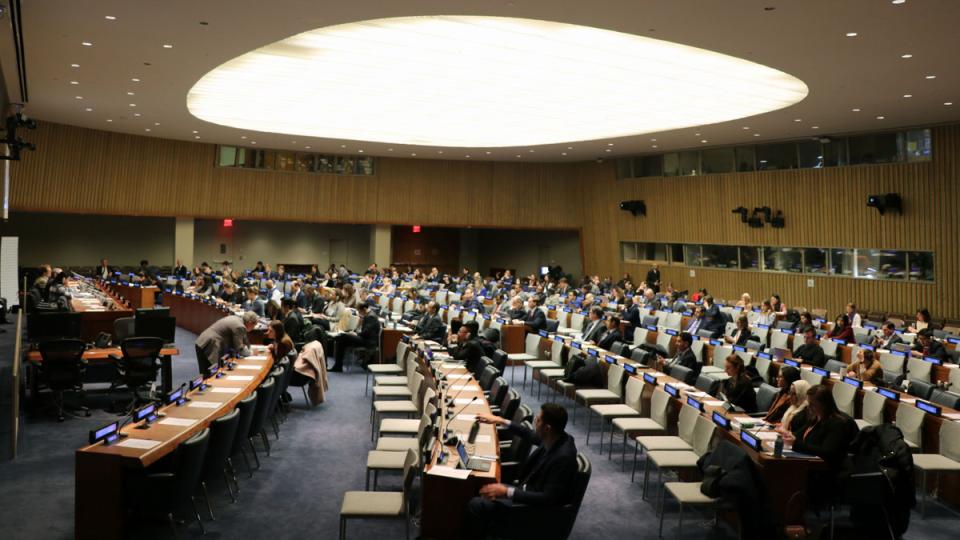Comprehensive and integrated counter-terrorism strategies

The Counter-Terrorism Committee holds an open meeting on countering terrorist narratives and preventing the use of the Internet for terrorist purposes. CTED/Vijai Singh
The Counter-Terrorism Committee Executive Directorate (CTED) advises Member States on the development of comprehensive and integrated national counter-terrorism strategies and on implementing mechanisms for those strategies that address the factors that lead to terrorist activities.
Why? The evolution of the terrorist threat has demonstrated the need to counter terrorism in a holistic manner. Whole-of-government and whole-of-society approaches are therefore essential components for counter-terrorism strategies are therefore essential components of comprehensive and integrated counter-terrorism strategies. In its resolutions 1963 (2010), 2129 (2013), 2395 (2017), and 2617 (2021), the Security Council encourages Member States to consider developing comprehensive and integrated national counter-terrorism strategies and effective mechanisms to implement them that include attention to the conditions conducive to terrorism, in accordance with their obligations under international law. In these resolutions, the Council further encourages CTED to, inter alia, assess and advise on formulating comprehensive and integrated national and regional counter-terrorism strategies and the mechanisms to implement them.
How? When assessing Member States’ counter-terrorism measures to implement the relevant Security Council resolutions, CTED analyses existing strategies in light of the national threat assessment, the national context, and the relevant international standards. The latter include the United Nations Global Counter-Terrorism StrategyOpens a new window, the relevant Security Council resolutionsOpens a new window, CTED’s Technical Guide to the implementation of Security Council resolutions, and the “Bogota PrinciplesPDFOpens a new window”. CTED consistently encourages Member States to strengthen the resilience of the population through a balanced, multidisciplinary and holistic approach that integrates law enforcement measures and measures to address the socioeconomic, political, educational, development, human rights, gender and rule-of-law dimensions. Where applicable, CTED recommends that Member States take further measures to develop a comprehensive and integrated counter-terrorism strategy. Where comprehensive and integrated counter-terrorism strategies are already in place or developed, CTED also identifies these as good practices to disseminate to other Member States seeking support to develop their counter-terrorism strategies.
What? Acting on behalf of the Counter-Terrorism Committee, CTED assesses and advises Member States’ development of comprehensive counter-terrorism strategies. CTED’s desk assessment review is also a process that ensures all Member States are assessed in this area in an even-handed manner. CTED is also the Chair of the United Nations Global Counter-Terrorism Coordination Compact Working Group on National and Regional Counter-Terrorism Strategies (NARS)Opens a new window with the United Office of Counter-Terrorism as Vice-Chair. The NARS Working Group aims to promote coordination, complementarity, and coherence in the work of the Compact entities and promote a whole-of-government and a whole-of-society approach when Member States and/or regional organizations develop or update their counter-terrorism strategies.
Download the CTED factsheet about comprehensive and integrated counter-terrorism strategiesPDF.

